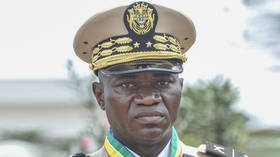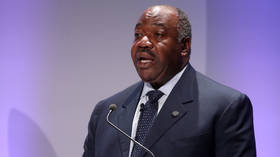Gabon coup leaders appoint new ruler

Officers from the Gabonese Armed Forces have appointed the chief of the Republican Guard, General Brice Oligui Nguema, as the Central African country’s new ruler following the ouster of President Ali Bongo in a coup on Wednesday.
Nguema was chosen to lead the former French colony’s transition council after a meeting of commanders-in-chief of the Security and Safety Forces, according to local media.
Prior to his appointment, the coup leader was carried through the streets of Libreville by jubilant soldiers. Nguema previously served the country’s long-time former president, Omar Bongo, before working with his son, Ali Bongo.
Earlier on Wednesday, army officers from the oil-rich African country declared on national television that they had taken control of Libreville.
The announcement came shortly after the Gabonese Election Centre (CGE) indicated Bongo had won a third term with 64.27% of the vote in the presidential election.
The coup leaders declared that the election results had been canceled and that all state institutions had been dissolved, essentially bringing an end to almost six decades of rule by the Bongo family.
In a later statement, the coup leaders said the overthrown president had been placed under house arrest, while his son Noureddin Bongo Valentin, as well as certain government officials, had been arrested for “high treason.”
Nguema, who spoke on behalf of the coup leaders in the hours following the military takeover, told the French newspaper Le Monde that the detained Bongo was “retired,” but would “enjoy all his rights” as a “normal Gabonese.”
Bongo has appealed to the local and international communities to intervene, despite crowds in Libreville and elsewhere in the nation of 2.3 million celebrating his overthrow.
The Central Africa’s political bloc, the Economic Community of Central African States (ECCAS), condemned the coup in a statement published on Thursday.
The bloc criticized the “use of force as a means of resolving political conflicts and access to power.” It announced an “imminent” meeting of regional heads of state, as well as peace and security chiefs, to determine “the way forward.”













